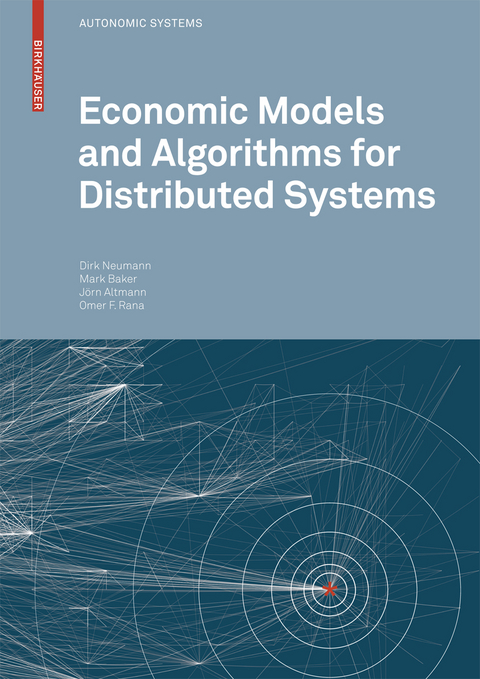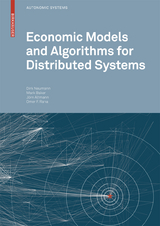Economic Models and Algorithms for Distributed Systems
Springer Basel (Verlag)
978-3-7643-8896-6 (ISBN)
Distributed computing paradigms for sharing resources such as Clouds, Grids, Peer-to-Peer systems, or voluntary computing are becoming increasingly popular. While there are some success stories such as PlanetLab, OneLab, BOINC, BitTorrent, and SETI@home, a widespread use of these technologies for business applications has not yet been achieved. In a business environment, mechanisms are needed to provide incentives to potential users for participating in such networks. These mechanisms may range from simple non-monetary access rights, monetary payments to specific policies for sharing. Although a few models for a framework have been discussed (in the general area of a "Grid Economy"), none of these models has yet been realised in practice. This book attempts to fill this gap by discussing the reasons for such limited take-up and exploring incentive mechanisms for resource sharing in distributed systems. The purpose of this book is to identify research challenges in successfully using and deploying resource sharing strategies in open-source and commercial distributed systems.
Economic Models and Algorithms for Distributed Systems.- Economic Models and Algorithms for Distributed Systems.- Reputation Mechanisms and Trust.- A Belief-based Trust Model for Dynamic Service Selection.- Reputation, Princing and the E-Science Grid.- Trust-oriented Utility-based Community Structure in Multiagent Systems.- Formation of Virtual Organizations in Grids: A Game-Theoretic Approach.- Towards Dynamic Authentication in the Grid - Secure and Mobile Business Workflows Using GSet.- Service Level Agreements.- Enforcing Service Level Agreements Using an Economically Enhanced Resource Manager.- Extended Resource Management Using Client Classification and Economic Enhancements.- Mitigating Provider Uncertainty in Service Provision Contracts.- Text-Content-Analysis based on the Syntactic Correlations between Ontologies.- Business Models and Market Mechanisms.- Cloud Computing Value Chains: Understanding Businesses and Value Creation in the Cloud.- A Model for Determining the Optimal Capacity Investment for Utility Computing.- A Combinatorial Exchange for Complex Grid Services.- Heuristic Scheduling in Grid Environments: Reducing the Operational Energy Demand.- Facing Price Risks in Internet-of-Services Markets.
| Erscheint lt. Verlag | 7.12.2009 |
|---|---|
| Reihe/Serie | Autonomic Systems |
| Zusatzinfo | VI, 270 p. |
| Verlagsort | Basel |
| Sprache | englisch |
| Maße | 155 x 235 mm |
| Gewicht | 408 g |
| Themenwelt | Mathematik / Informatik ► Informatik ► Netzwerke |
| Informatik ► Weitere Themen ► Hardware | |
| Schlagworte | Algorithmen • algorithms • autonomic computing • Cloud Computing • Distributed Computing • Distributed Systems • economic models • E-Science • grid economics • Incentive Engineering • Internet • Management • Networks • ökonomische Modelle • organization • Technology • Verteilte Systeme • virtual organization |
| ISBN-10 | 3-7643-8896-X / 376438896X |
| ISBN-13 | 978-3-7643-8896-6 / 9783764388966 |
| Zustand | Neuware |
| Haben Sie eine Frage zum Produkt? |
aus dem Bereich




